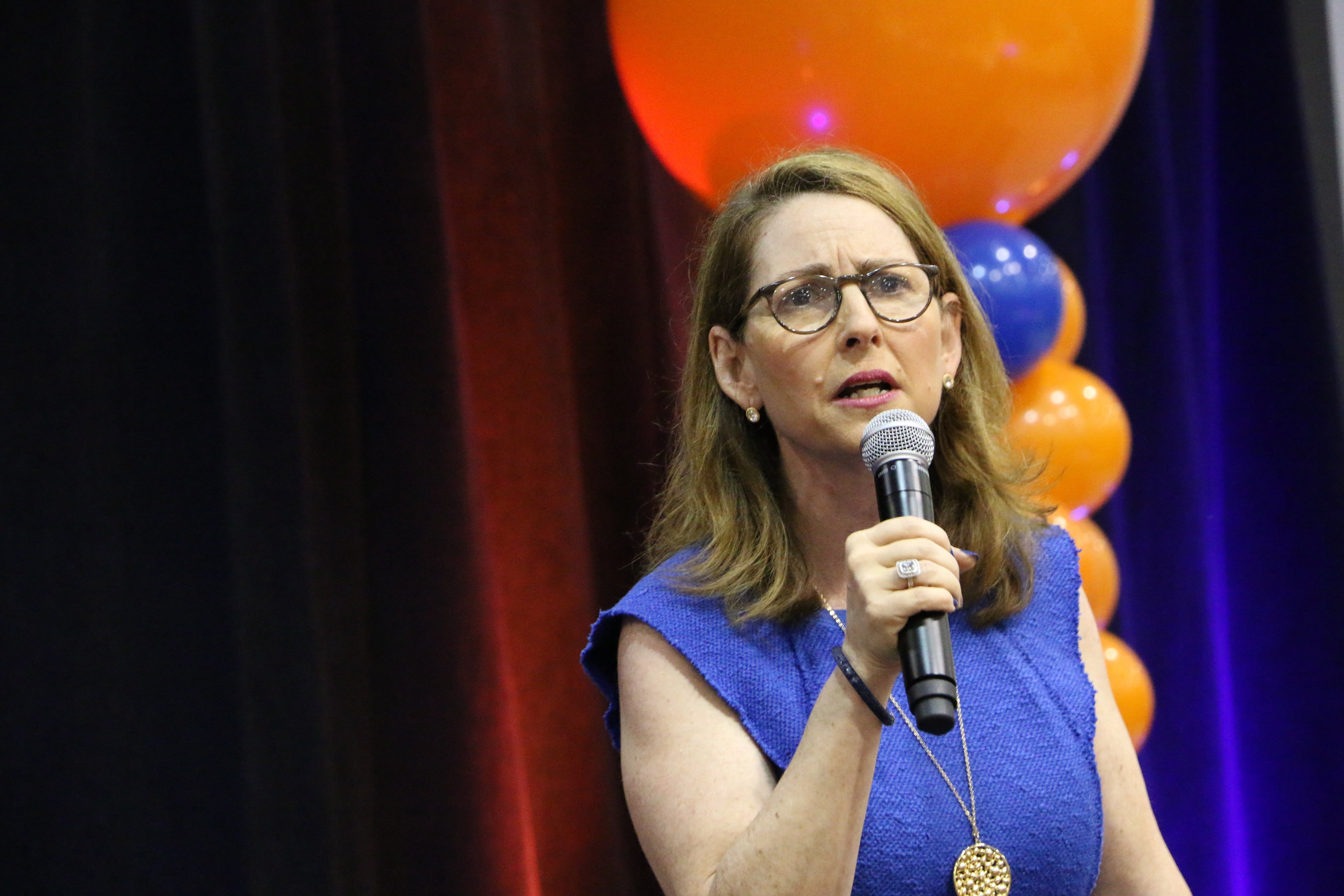Sign up for Chalkbeat New York’s free daily newsletter to keep up with NYC’s public schools.
Success Academy, New York City’s largest charter operator, is considering an expansion to Florida, a major shift in strategy for the network.
Success founder and CEO Eva Moskowitz said Wednesday she is in search of friendlier terrain for expansion.
New York has been “a rather hostile political environment” for charter schools, Moskowitz testified at a Florida State Board of Education meeting Wednesday morning. She later added: “I want to be in a place that’s high-growth, that’s high-innovation, that is welcoming to parental choice.”
The network’s decision to contemplate expanding beyond New York is a notable shift, as Success has operated schools exclusively within the five boroughs since launching in 2006.
Moskowitz previously outlined aggressive plans to expand to 100 schools locally, roughly double the number that the network currently operates. But Moskowitz and other leaders have faced strong headwinds. Charter schools have fallen out of favor with many Democrats and the sector faces a strict cap on the number of schools that are allowed to operate in the state. The legislature recently allowed 14 new charters to open in New York City, but have not signaled any plans to allow dramatically more than that.
Plus, the city’s charter networks have struggled with declining enrollment in recent years, including Success, though preliminary state figures show the network now enrolls about 21,000 students, erasing pandemic-era enrollment losses. Success is currently looking to open six new schools, according to the SUNY Charter Schools Institute, which oversees Success.
Florida officials, meanwhile, are rolling out the red carpet. The State Board of Education voted Wednesday to designate Success as a “School of Hope” operator, a program designed to attract high-performing charters to the state, offering funding for construction and other startup costs.
Enrollment in Florida’s charter sector has steadily grown in recent years, educating nearly 14% of students, or roughly 400,000 children, state data show. Charters are publicly funded, but privately operated schools.
In her testimony, Moskowitz emphasized that the network’s students are overwhelmingly low-income children of color and their test scores far outpace the city’s district schools — and even affluent suburbs. She also highlighted the network’s track record of preparing students to attend competitive colleges.
“This is exactly what we were envisioning: To have a charter school network to be able to come in and really serve those populations that are in need of this kind of academic rigor, of this performance,” State Education Commissioner Manny Diaz, Jr. said at the Wednesday hearing.
But Success has also been dogged by persistent allegations that school officials push out children who are more difficult to serve, including suspending them or dialing 911 when students are experiencing behavioral problems or emotional distress. In 2015, the New York Times reported that one of its Brooklyn campuses had created a “Got to Go” list of troublesome students. Success officials said the list was a mistake and have disputed that they systematically push children out.
It’s not clear how quickly Success might move to open schools in Florida or even if they will ultimately move forward with plans to do so. A Success Academy spokesperson did not elaborate.
“At a time when many schools are failing to prepare their students for college and the future, the prospect of bringing an alternative model with proven success to states committed to education reform and school choice, is something we think is worth exploring,” Moskowitz said in an emailed statement.
Success’ decision to pursue expansion surprised some of the network’s closest observers, including Robert Pondiscio, a senior fellow at the conservative American Enterprise Institute who embedded in a Success school for a year and wrote a book about the network’s model.
Though he noted the network launched an effort to export its curriculum and management practices to schools across the country, Moskowitz “has long eschewed the idea of opening and operating schools outside of New York,” he wrote on Wednesday.
During his time at a Success elementary school in the South Bronx, Pondiscio said he saw teachers and administrators moved between schools during the year to address real-time needs, a practice that would be complicated if the network opens far away campuses.
“Help is a subway ride away, not 500 miles away,” he wrote.
In addition to Success, five other charter operators are also designated as “Schools of Hope” in Florida, according to the state’s website: Mater Academy, RCMA, Democracy Prep Public Schools, IDEA Public Schools, and KIPP New Jersey.
Alex Zimmerman is a reporter for Chalkbeat New York, covering NYC public schools. Contact Alex at azimmerman@chalkbeat.org.







